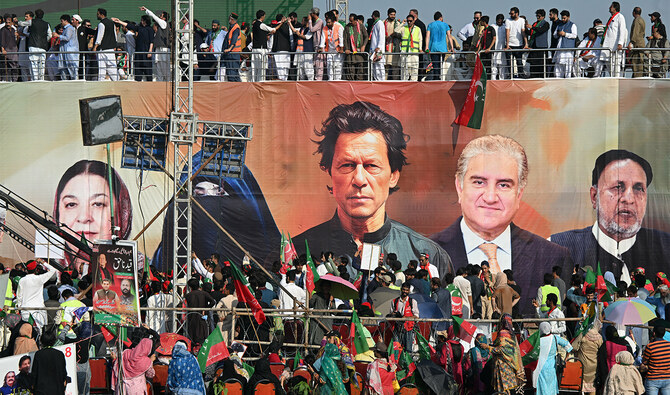ISLAMABAD: Former Prime Minister Imran Khan said on Wednesday he had formed a leadership committee to lead a planned protest in the Pakistani capital, Islamabad, on Nov. 24 and conduct negotiations as his party prepares to launch an anti-government movement.
The jailed leader’s Pakistan Tehreek-e-Insaf party has announced a ‘long march’ to Islamabad over alleged rigging in Feb. 8 general elections and to call for the release of political prisoners and the independence of the judiciary.
“I have formed a leadership committee to lead the protest and conduct negotiations,” Khan said in an X message from prison, urging his supporters to reach Islamabad for the protest and “not return until our demands are met.”
It was unclear who the committee would negotiate with, but in the past Khan has called for talks with the military, describing it as the “real decision-makers” as opposed to the “puppet government” led by Prime Minister Shehbaz Sharif.
Regarding the Nov. 24 protest, the PTI’s first demand is a rollback of recent constitutional amendments like the 26th amendment that it says is an attempt to curtail the independence of the senior judiciary. The party is also calling for the release of all political prisoners, including Khan, and a return of “the public mandate” following what it believes was a rigged general election.
Pakistan’s government denies being unfair in Khan’s treatment and its election commission denies the elections were rigged. The government also says the recent amendments related to the judiciary are meant to smooth out its functioning and tackle a backlog of cases.
Khan has been in jail since August 2023 and has faced dozens of cases since he was removed as prime minister in 2022 after which he launched a protest movement against a coalition of his rivals led by current PM Sharif and backed by the all-powerful military, which denies interfering in politics.
Khan says cases against him, which disqualified him from contesting the February elections, are politically motivated.
















